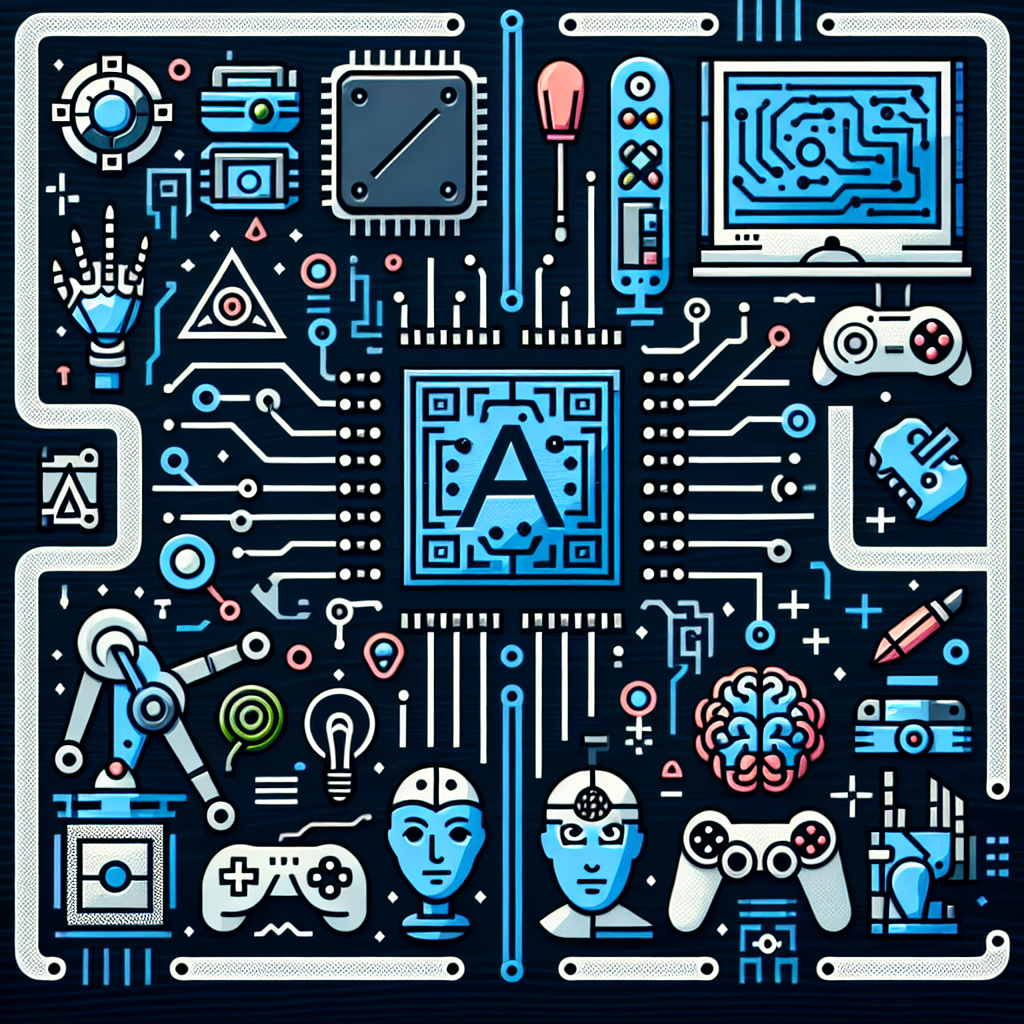The gaming industry has always been at the forefront of innovation, constantly pushing boundaries to provide players with new and exciting experiences. One of the latest developments that has been making waves in the gaming world is the integration of artificial intelligence (AI) technology into games. AI has the potential to revolutionize the way games are played, creating more immersive and dynamic experiences for players. In this article, we will explore the future of AI development in the gaming industry and how it is shaping the future of gaming.
AI technology has already made a significant impact on the gaming industry, with many games incorporating AI systems to enhance gameplay and provide players with more challenging opponents. One of the most notable examples of AI in gaming is in the development of non-player characters (NPCs) that are controlled by AI algorithms. These NPCs can adapt to player behavior, making them more realistic and challenging opponents.
AI technology has also been used to create more dynamic and responsive game environments. For example, in open-world games, AI algorithms can be used to generate dynamic weather systems, traffic patterns, and other environmental factors that can impact gameplay. This makes the game world feel more alive and immersive, creating a more realistic and engaging experience for players.
Another area where AI is making a big impact in the gaming industry is in the development of procedural content generation (PCG) systems. PCG systems use AI algorithms to generate game content such as levels, missions, and items on the fly, allowing for endless possibilities and replayability. This can help developers create larger and more diverse game worlds without having to manually design every aspect of the game.
AI technology is also being used to improve player experiences by personalizing gameplay based on individual preferences and skill levels. For example, AI algorithms can analyze player behavior and adjust game difficulty levels accordingly, ensuring that players are always challenged but not frustrated. This can help create a more enjoyable and rewarding experience for players of all skill levels.
As AI technology continues to evolve, we can expect to see even more advancements in the gaming industry. One area that is poised for growth is the development of AI-powered virtual assistants that can help players navigate game worlds, provide tips and hints, and even engage in natural language conversations. This can help create more immersive and interactive gaming experiences, blurring the lines between reality and virtual worlds.
AI technology also has the potential to revolutionize the way games are developed and tested. Game developers can use AI algorithms to automate tasks such as bug testing, level design, and playtesting, saving time and resources. This can help developers create more polished and high-quality games in less time, ultimately leading to a better experience for players.
Overall, the future of AI development in the gaming industry looks promising, with endless possibilities for innovation and growth. As AI technology continues to evolve, we can expect to see more immersive and dynamic gaming experiences that push the boundaries of what is possible. The integration of AI into games will help create more engaging and personalized experiences for players, making gaming more accessible and enjoyable for everyone.
FAQs:
1. How is AI technology being used in the gaming industry?
AI technology is being used in the gaming industry in a variety of ways, including the development of AI-controlled NPCs, dynamic game environments, procedural content generation systems, and personalized gameplay experiences.
2. What are some examples of AI in gaming?
Some examples of AI in gaming include NPCs that adapt to player behavior, dynamic weather systems, traffic patterns, and other environmental factors, procedural content generation systems, and personalized gameplay experiences based on individual preferences and skill levels.
3. How is AI technology revolutionizing game development and testing?
AI technology is revolutionizing game development and testing by automating tasks such as bug testing, level design, and playtesting, saving time and resources for developers and ultimately leading to more polished and high-quality games.
4. What can we expect from the future of AI development in the gaming industry?
In the future, we can expect to see even more advancements in AI technology in the gaming industry, including the development of AI-powered virtual assistants, more immersive and interactive gaming experiences, and a greater focus on personalization and player engagement.

